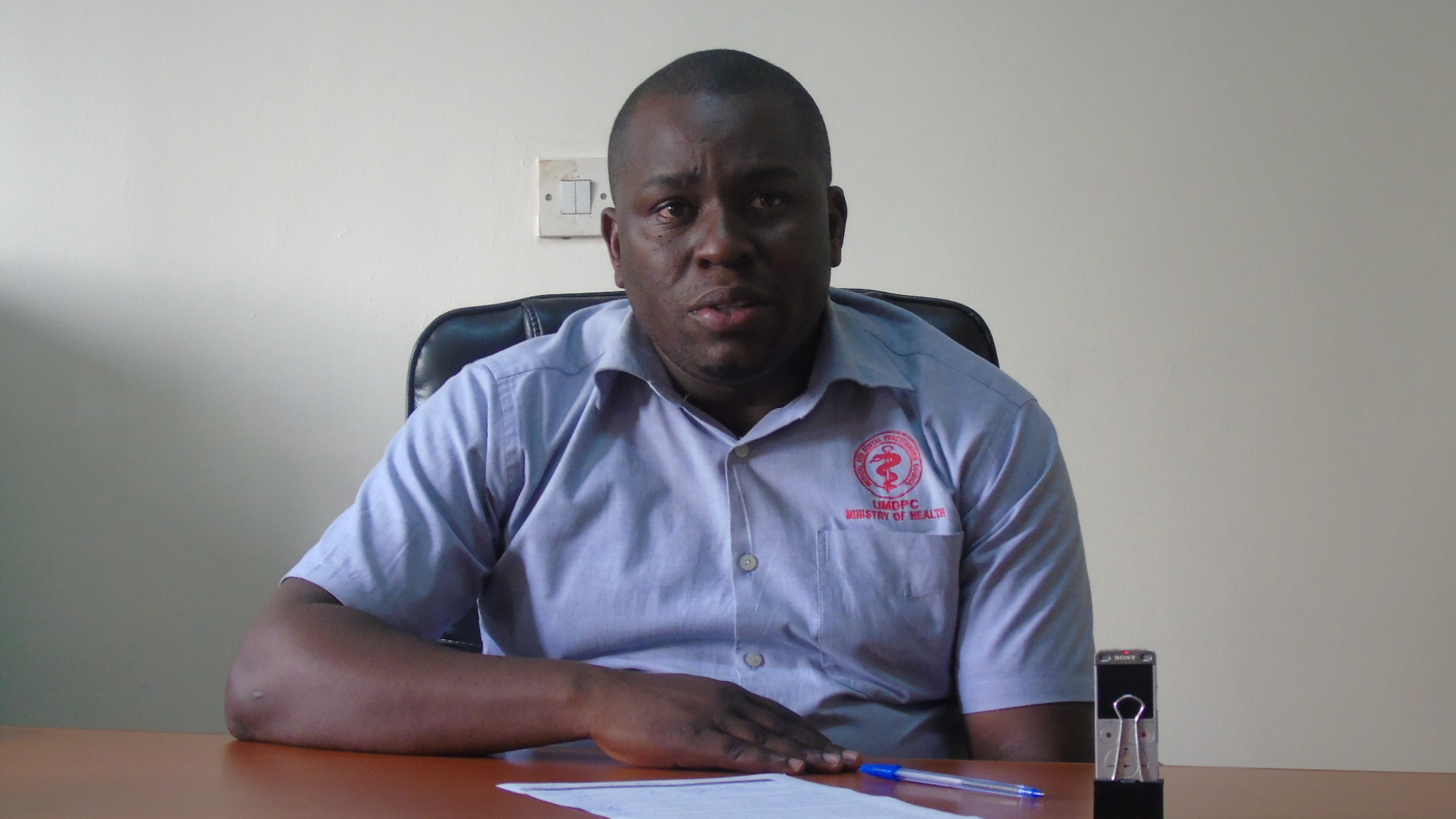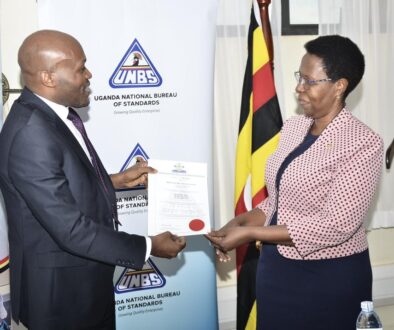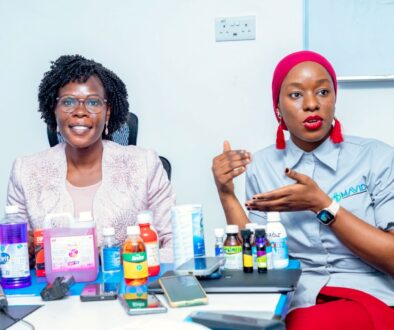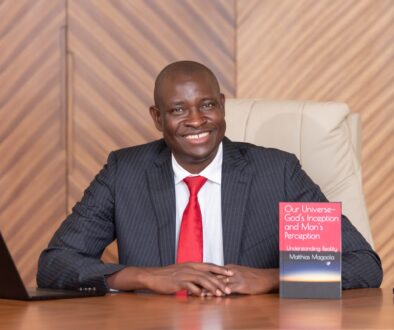Boosting NRM Manifesto Implementation

Dr Ivan Kisuule.
The Uganda Medical and Dental Practitioners Council, the custodian of the register of medical professionals, annually registers new doctors and submits the information to the Ministry of Health, which informs on the available human resources for health.
The Council is a government body, mandated to regulate the medical and dental professions.
Manifesto Magazine sought Dr Kisuule Ivan, the Ag Registrar of the Council for his view on its contribution to implementing the NRM 2021-2026 Manifesto.
He says the Council, “Monitors and supervises medical and dental education by inspecting medical and dental schools in the country.

It registers and annually licenses the doctors and dentists who have completed their training.
It also supervises their practice and medical facilities by giving them practising and operating licenses authorizing them to work and ensure that they perform according to the established standards and professional conduct.
The Medical and Dental Practitioners Council investigates reported cases of professional misconduct among doctors and dentists and reprimands the culprits. It also advises the government on health as per its mandate.
Whereas doctors were deployed up-to Health Centres IV, the Ministry of Health plans their deployment to Health Centres III enabled by the increased numbers of doctors graduating annually, if the wage bill allows.
The Council registers nearly 1000 doctors and dental surgeons after their medical school and internship training annually. More than ten thousand doctors and dentists have been registered since an Act of Parliament established the Council in 1998.
The registration information guides the Ministry of Health and other stakeholders in planning for human resources for recruitment through the Health Service Commission and deployment to the public health facilities.
The Medical and Dental Practitioners’ Council has ensured that doctors and dentists are well-trained, qualified, and licensed, enabling them to work anywhere in the country and abroad.
The Council’s mandate is to register every doctor from the different training levels starting with the Bachelor of Medicine and Bachelor of Surgery (MBChB) or Bachelor of Dental Surgery (BDS) degree.
They can work for a while and then train in different specialisations to attain a Master’s degree and become a specialist doctor, upon which they register as specialists.
Others proceed to train in a sub-speciality fellowship within the Country under the supervision of the Council, which accredits the fellowships’ Curricula and training sites in Uganda.
Currently, the Uganda Cancer Institute is accredited to train sub-specialists in Oncology-the care for cancer patients, and the Uganda Heart Institute for training sub-specialists in Cardiology, which has to do with heart diseases.
Makerere University College of Health Sciences is accredited to train sub-specialists in Intervention Radiology, which deals with use of modern equipment to do interventions without opening up a patient.
This college also trains in Paediatric oncology and haematology, like the Cancer Institute, whereas other fellowship programmes are under consideration.
Previously, the sub-specialists trained from outside the country, but the Uganda Medical and Dental Practitioners’ Council has enabled internal capacity building to have them locally done.
The area with advanced training under the Uganda Medical and Dental Council is Cardiology, which has trained at least three fellows annually over the last five years. Uganda Cancer Institute is training for the fourth year, while some doctors train outside the country. Doctors and dentists who complete the training register with the Council as Sub-specialists.
The Health Service Commission recruits them to work in super-specialist public health facilities, like Mulago National Super Specialist Hospital and the Mulago Women and Neo-Natal Hospital, Uganda Heart Institute, and Uganda Cancer Institute.
Further, the Council is involved in recognition of the medical doctors and dentists’ training programmes and their training sites in conjunction with the National Council for higher Education, the registration and licensure of those with formal training and those with sub-specialised skills.
The country’s 12 universities with medical schools annually produce an average of 1000 doctors, some of whom cannot be locally absorbed but can find employment elsewhere across the borders.
When they apply for registration and licensure, they indicate their current address, which informs the Council of their location. With the free movement of labour across borders, a doctor’s address cannot at any one time be guaranteed, although their departure is monitored through the issuance of certificates of good standing.
The certificate issuance is required for doctors intending to pursue further studies or practice outside the country, enabling them to find employment where they can.
The document certifies that they are qualified doctors without ethical or professional misconduct issues, in compliance with a universal practice associated with labour migration.
They also acquire more skills that Uganda benefits from when they return and repatriate some of their savings through their families benefitting the economy.
In the Health labour market analysis, we look at the supply, which is the production of the doctors, then the need, which speaks to the health requirements of the people to be served in the country and the demand which is the ability of the employers to absorb and pay these doctors.
We are conscious of the healthcare need of the population as Uganda has not yet attained the World Health Organisation-recommended doctor-to-patient ratio of 1 to 1000.
The other is the capability and capacity of the public and private sectors to recruit doctors and dentists and fairly remunerate them. Meeting the wage bill to enable the absorption of the doctors the country produces is still a challenge.
An advertisement for a post of a medical officer that attracts over 200 prospective applications indicates that doctors are seeking employment, but their absorption capacity is inadequate. Hence, some opt for non-medical endeavours, a form of internal brain drain, or leave the country, the external brain drain.
Nonetheless, the government has recently made efforts to recalibrate the health workers’ wages from the lowest to the highest cadre, positively impacting some highly trained specialists’ recruitment and retention.
From one of its’ four major roles, the Council has ensured quality medical education in the country and advocated for improved medical schools’ infrastructure, staffing and necessary equipment for the medical doctors and dentists’ training leading to production of good quality doctors helping to implement the NRM Manifesto under its human resource for health capital development initiative.
A healthy population is indicative of the NRM manifesto implementation. The Council has contributed to a health population by ensuring through inspections and supervision that health facilities meet the patient care standards and that doctors adhere to the professional code of conduct and provide good quality care.
The Council has handled several cases of doctors who are alleged to be involved in professional misconduct reported by patients or their caretakers where they think the doctor or the facility was wrong.
This helps the Council to ensure patients’ safety when they seek health care, receive good quality care, and recover from their ailments, to return to work and productivity.”



